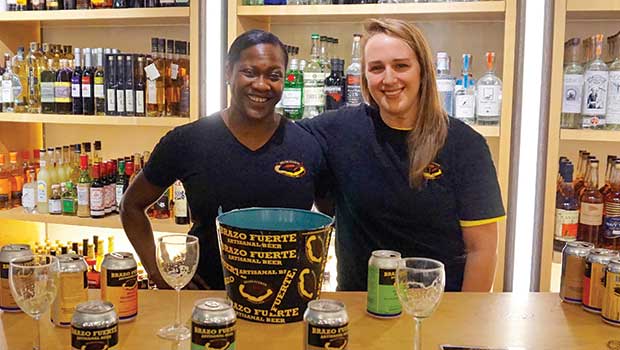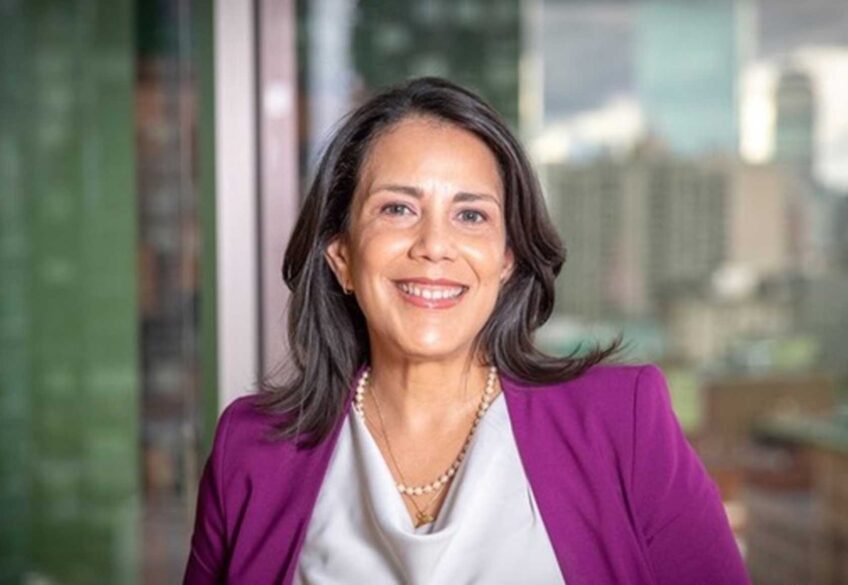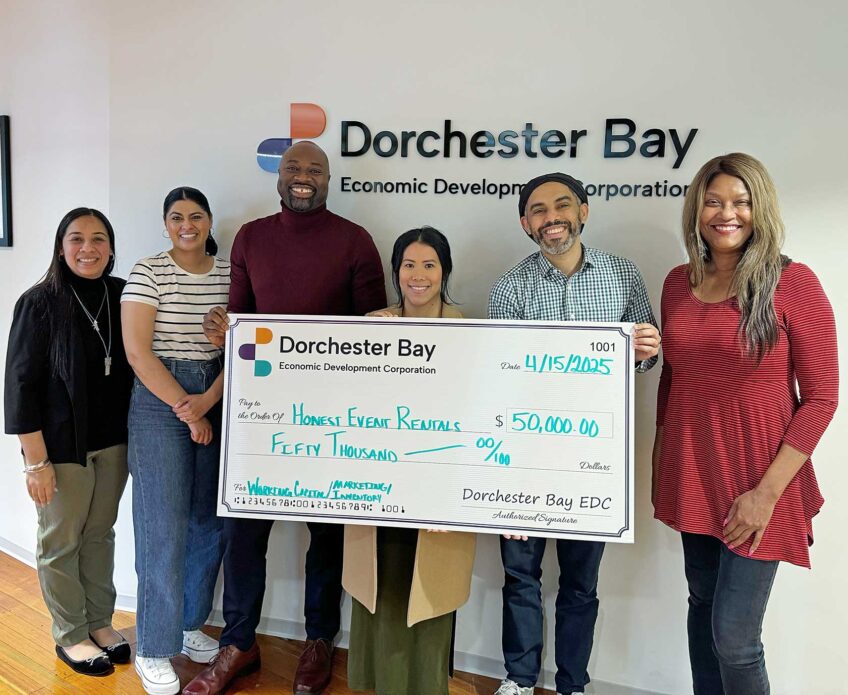A strong start for Brazo Fuerte Artisanal Beer
Attorney leaves corporate world to open craft brewery

Bev Armstrong, founder, CEO and head brewer of Brazo Fuerte Artisanal Beer, knows her career path is unusual. The Harvard-educated attorney and MBA made a “complete left turn” into entrepreneurship, hanging her shingle as a fulltime craft beer brewer in 2016 following a 15-year stint in the biotechnology industry in such high-level roles as CFO, general counsel and VP of operations.
Along the way, she also took up rugby with a passion, competing semi-professionally for 15 years.

Author: Courtesy Brazo FuerteBev Armstrong, founder of Brazo Fuerte Artisanal Beer, with Jim Koch, founder of Boston Beer Co., in an NECN interview about the 2017 Samuel Adams Beer and Business Experienceship awarded to Armstrong.

Author: Courtesy Brazo FuerteBrazo Fuerte’s line of handcrafted ales, made with organic ingredients.
On the Web
Brazo Fuerte Artisanal Beer: http://brazo-fuerte.squarespace.com
Instagram, Facebook, Twitter: @brazofuertebeer
Boston Area Beer Enthusiasts Society (BABES): www.facebook.com/BOSBABES/
Pink Boots Society: www.pinkbootssociety.org
Beer Judge Certification Program: https://www.bjcp.org
Yet, says Armstrong, who recently was selected for a coveted Samuel Adams Brewing and Business Experienceship, there are more similarities than meet the eye. Crafting a high-quality beer requires dedication, passion and more than a little understanding of science, from microbiology and chemistry to thermodynamics.
“People think brewing beer is a simple process, but it’s actually very complex,” she tells the Banner. “It offers as much art and science and creativity as you’ll find in any industry, and as many challenges as in biotech. It’s a very underestimated liquid — and industry.”
Armstrong’s pursuit of the perfect brew stems from her rugby experience. In the traditional post-match gatherings, raising a few glasses with the opposing team, she wished for a lower-alcohol but still intensely flavorful beverage — one that would be amenable to sticking around and socializing awhile. Nowadays there’s a term for that: “session” beers, which typically have an alcohol volume percent of 4.5 or less.
The New York native who dwells now in Watertown took up home brewing about 11 years ago. She started with small batches, shared with friends. She became certified as a beer judge and as a cicerone, a beer expertise similar to that of a wine sommelier. Now, her line of Brazo Fuerte session ales is sold at some 40 Boston area restaurants, bars and stores.
Beyond her rugby background and sharp career shift, being a woman — and especially an African American woman — makes her stand out even more among the 5,000 or so craft brewery owners in the U.S.
“I’m absolutely atypical in a room of brewers,” she acknowledges. “I’ll go to a conference where there are 10,000 or more people, and there are not very many others — or frankly, no one — like me.”
That rarity, she says, has neither hindered nor aided her as she’s worked to craft and publicize her beers.
“Showing up with good tasting beer is what’s helped,” she says. “I found that once people figure out you’re serious and you know what you’re doing, they’re incredibly helpful and collaborative.”
Growing a green business
For now, she is a contract brewer, paying to make her beer at a friend’s brewery in New Hampshire. Production volume is small but growing. Her current target is to reach 500 barrels in the coming year, but she estimates she could easily provide twice as much if she had her own space. She is on the lookout for a location where she can open a brewing facility in Watertown or the nearby Allston-Brighton area of Boston.
Brazo Fuerte has one employee so far, Director of Operations Raylen Dziengelewski, who assists with tastings, distribution, marketing and social media. Armstrong likely will hire more people when her own facility is ready to go.
Starting a brewing business and building out a brick-and-mortar facility is no small endeavor. A 20-barrel system of vessels for milling, mashing, boiling and fermenting grain will require 15 or 16 feet in height and a floor area of 50-by-50 feet. And then there are the kegs, canning equipment and space for storage.
In addition, Armstrong has a keen interest in ecological sustainability. Besides eventually having her brewery certified organic, she intends to take measures to minimize energy and water use. A major goal is to have her operation be a “green technology laboratory,” she says.
In November, Brazo Fuerte got a boost when the business plan won Armstrong entry to the Samuel Adams Brewing the American Dream program, which connects up-and-coming food and beverage companies with funding through the microlender Accion. As a further part of that program, Armstrong was singled out for the 2017 Brewing and Business Experienceship, which will provide coaching and mentoring tailored to the brewing industry. One of the first benefits was a scholarship to attend last fall’s “Beer, Bratwurst and Beyond” tour in Germany sponsored by the Pink Boots Society, a nonprofit working to inspire and assist female beer professionals.
From all-organic ingredients to names, Armstrong’s products exude personal tastes and experiences. Brazo Fuerte — meaning “strong arm” — is a nickname given to Armstrong by rugby teammates while playing in Spain. Her beers’ names have stories behind them, honoring teammates, friends, dogs.
“This is not a manufactured brand,” she states. “Every single element comes from my heart and from my passion for beer, my love of rugby, my love of dogs.”
Worth the risk
As for advice to would-be brewing entrepreneurs, Armstrong says that while turning this passion into a business brings her joy, it is not something to take on lightly.
“It’s an incredibly intricate process, not for the faint of heart,” says Armstrong, speaking of the physical setup along with the federal, state and city licensing hurdles and the overall costs. While she had a bit of a financial cushion after her decades of professional employment, future earnings are an unknown.
“It’s definitely still a leap of faith,” she says. “[But] I put a lot of work into understanding the industry and the prospects. I believe that ‘If you make it, they will come.’ It’s an incredible amount of work. I wake up doing beer, I go to sleep doing beer. But if you have a passion, that’s what you prepare for – there’s no quitting time. It’s worth the risk. To make people happy with beer is incredibly satisfying.”






